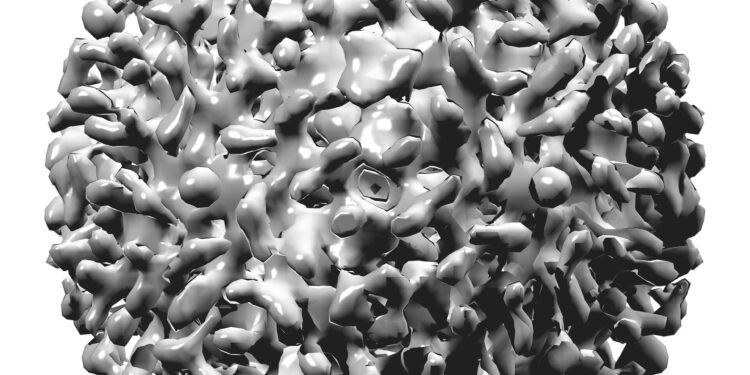Credit: Pixabay/CC0 Public domain
Nearly 90% of the 57 million people living with hepatitis C live in low- and middle-income countries, but only half of these countries currently offer affordable cures, according to a Kirby Institute study from UNSW Sydney.
This discovery is part of an analysis published in The Lancet Gastroenterology and Hepatology which examined the registration, reimbursement and restrictions of hepatitis C treatments in 160 countries around the world. These countries represent approximately 95% of the world’s population.
“Current direct-acting antiviral treatments cure hepatitis C in more than 95% of people, revolutionizing the way we manage this disease. But the cost of treatment remains high in most countries, which has led to disparate deployment globally, with many countries. imposing restrictions on both who can access it and who can prescribe it,” says Dr Alison Marshall, who led the research at the Kirby Institute.
“Universal access to health coverage means that everyone should have access to the full range of quality services they need, regardless of their identity, place of birth or the nature of their health condition. »
According to the study, of the 160 countries analyzed, 91% recorded at least one treatment for hepatitis C, but only two-thirds of countries offer their residents access to reimbursed (subsidized) treatment. Among low- and middle-income countries, just over half provide reimbursement. Seven countries restrict access based on drug use and five based on alcohol use.
“Given that the majority of people living with hepatitis C live in low- and middle-income countries, we need to see many more countries provide reimbursement for hepatitis C treatment, particularly if we are to achieve the World Health Organization’s goal of eliminating hepatitis C as a public health threat by 2030,” says Dr. Marshall.
“Most people living with hepatitis C around the world are marginalized and face multiple difficulties accessing care. If cost is a barrier to recovery, they are unlikely to seek treatment, posing risks to their health, as well as transmission.
Specialized meetings
Another barrier to access to curative treatments is the question of who can prescribe the drugs. The analysis found that in 61% of countries, a specialist (e.g. liver disease specialist, infectious disease specialist) was needed to prescribe the medicine. This restriction reduces the proportion of available prescribers and most often requires patients to be treated in a specialized center, often hospital.
“This is a major barrier for marginalized population groups such as people who use or inject drugs – people who are more likely to experience stigma in health and care settings. Avoid going to hospitals. “Specialist centers such as primary care centers would expand access,” says Professor Jason Grebely, lead author of the paper.
The researchers conclude that there is a need for more innovative financing models to encourage and facilitate increased access to treatment, particularly in low- and middle-income countries.
“There have been some major initiatives, such as the Clinton Health Access Initiative and the Hepatitis Fund, which have helped facilitate pricing agreements with generic manufacturers to provide treatments to low- and middle-income countries for US$60 per treatment, but we need to do more to help countries increase access to these life-saving treatments,” says Professor Grebely.
Rachel Halford, CEO of the Global Hepatitis Alliance, says the research is both alarming and timely.
“We hope this research will motivate action by policymakers and health professionals globally, as the urgency of tackling hepatitis cannot be overstated.”
“Eliminating viral hepatitis will prevent hundreds of thousands of lives lost to liver cancer and other liver diseases resulting from chronic hepatitis. As a global hepatitis community, we must collaborate to drive change. We applaud the Kirby Institute’s contribution to this global collaboration with this research. “.
More information:
Graham S Cooke et al, Progress towards eliminating viral hepatitis: update from the Lancet Commission on Gastroenterology and Hepatology, The Lancet Gastroenterology and Hepatology (2024). DOI: 10.1016/S2468-1253(23)00321-7
Provided by the Kirby Institute, UNSW Sydney
Quote: Revealing global barriers to accessing curative treatment for hepatitis C (February 19, 2024) retrieved February 19, 2024 from
This document is subject to copyright. Apart from fair use for private study or research purposes, no part may be reproduced without written permission. The content is provided for information only.



